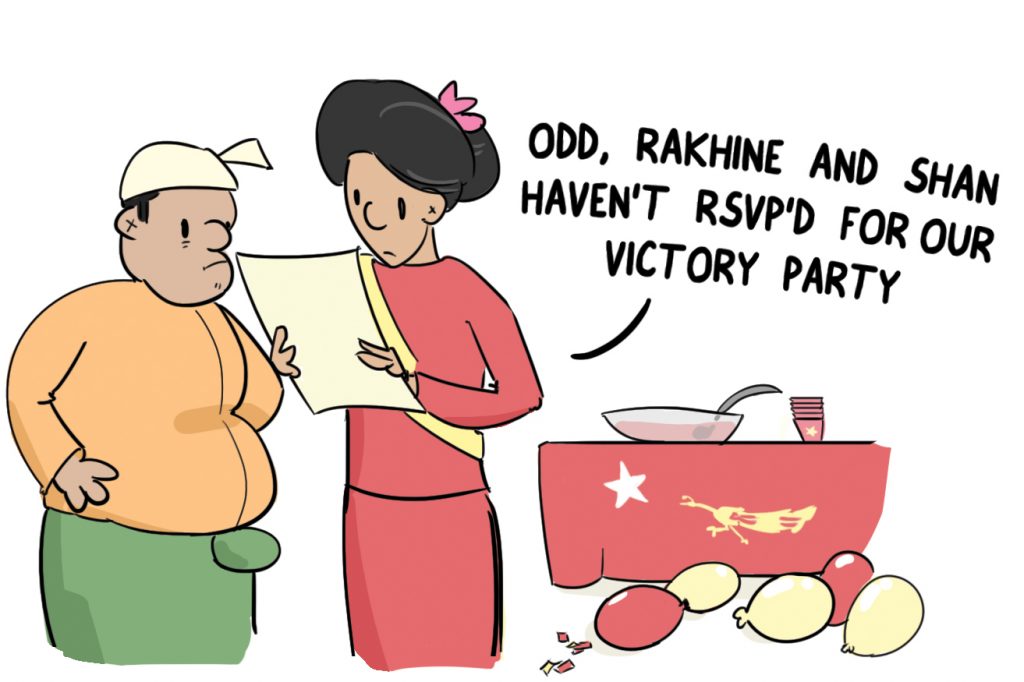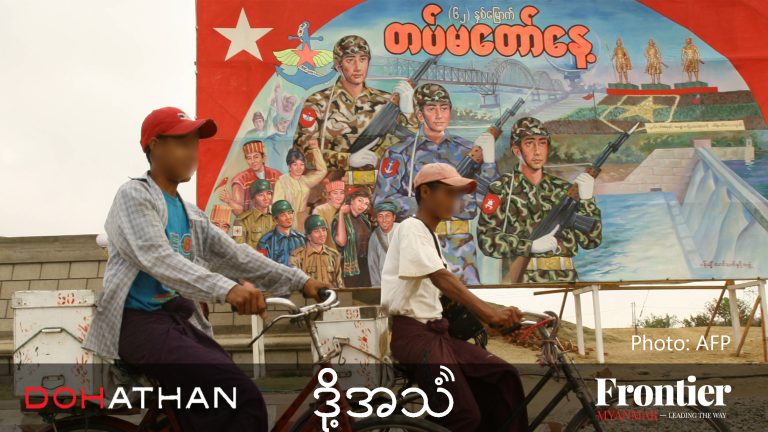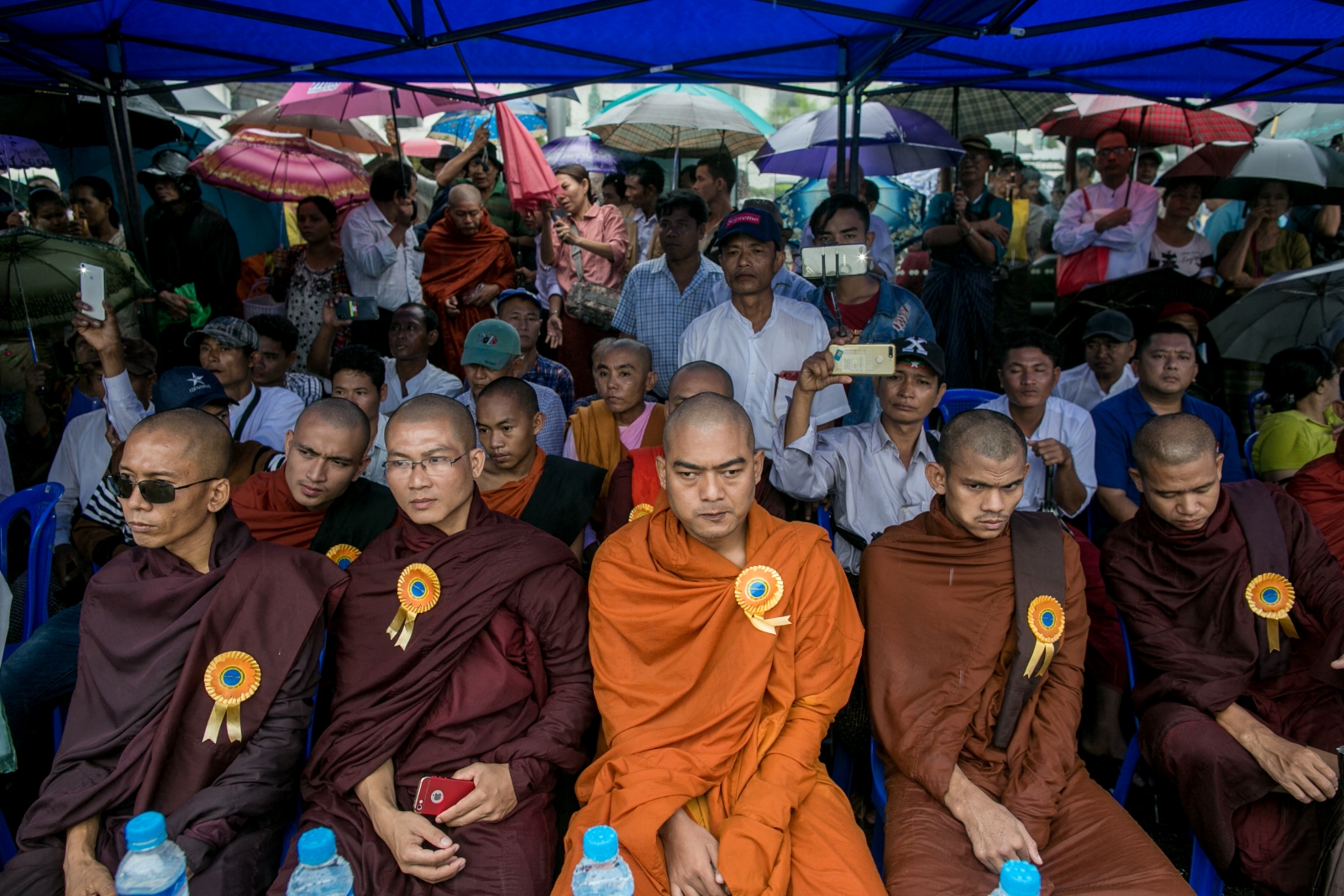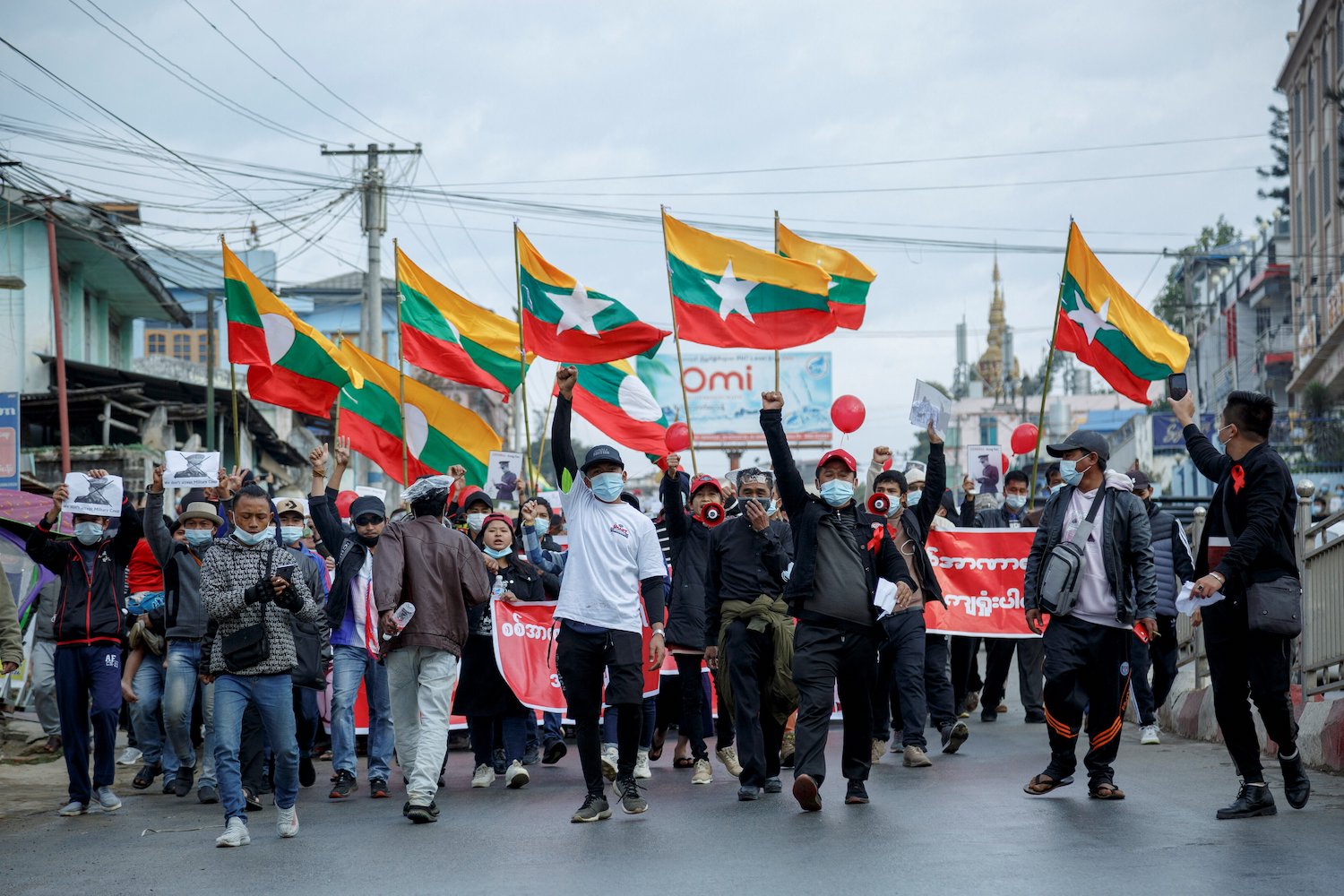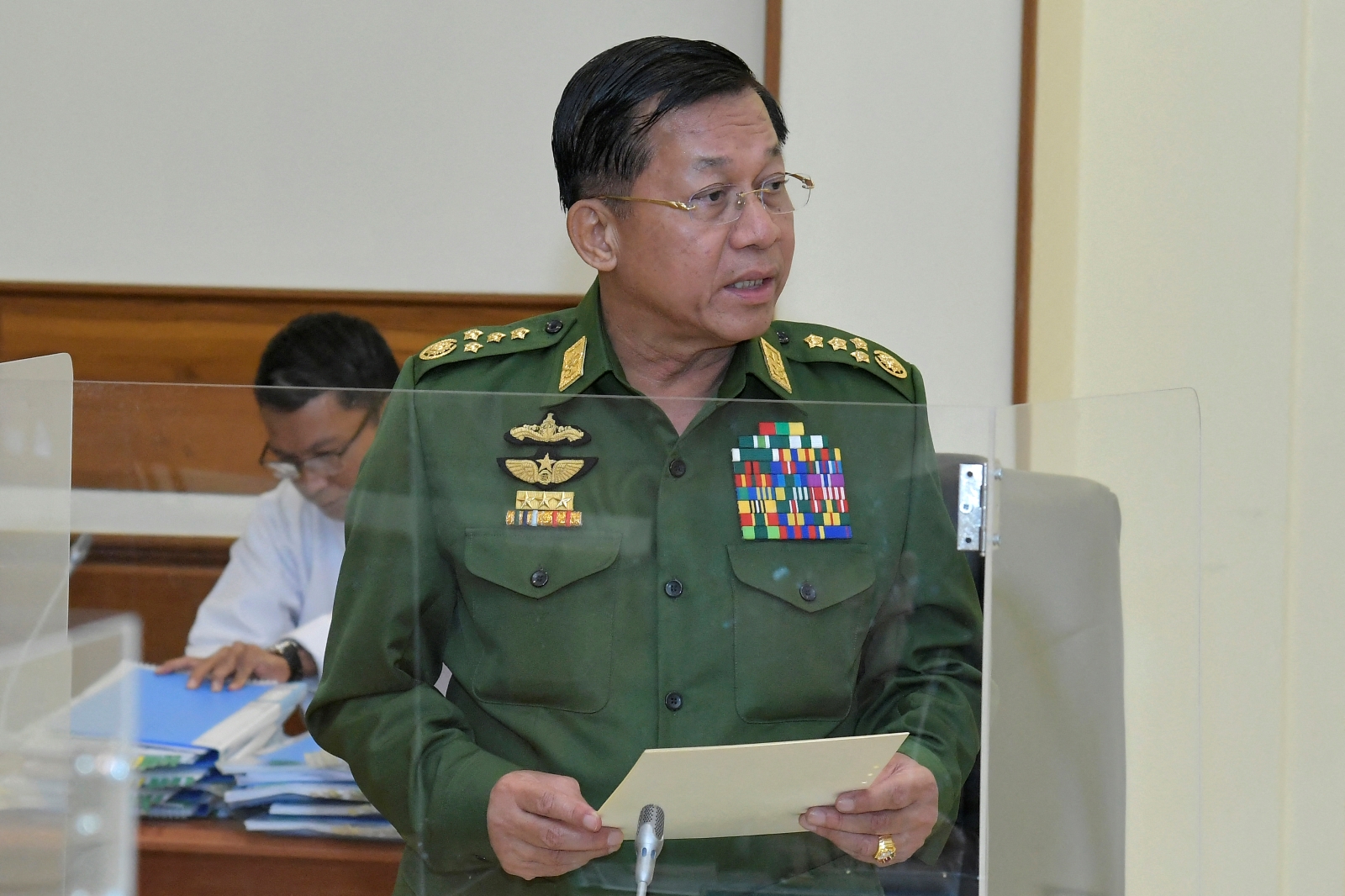Much of the damage is already done, but the new government can help to remedy it.
Five years can feel like a long time. It certainly does in Myanmar.
Back in 2015, the world watched on as crowds gathered outside the National League for Democracy headquarters on Yangon’s Shwegondine Road on a balmy evening in November 2015. There were jubilant scenes when results trickling in from Myanmar’s first democratic election in a generation began to indicate an NLD victory, but spirits were high in towns and villages across most of Myanmar. For many, it felt like the nation’s victory.
History has been somewhat recast to paint both a credible election and an NLD landslide as the inevitable result of reforms launched by the military junta in 2011. But right up to voting day, many were anxious that the Union Election Commission, stacked with ostensible loyalists of the military-aligned Union Solidarity and Development Party, would somehow rig the poll in favour of the ruling party.
For months the NLD had been hammering the commission about inaccuracies in the voter lists, claiming at one point they were up to “80 percent” wrong and would cause massive disenfranchisement. But on the day there were very few reports of voters being turned away from polling stations because of problems with the lists, or for any other reason.
These and more valid concerns, such as the opaque advance voting procedure for Tatmadaw soldiers and their families (which remains largely unchanged to this day), quickly melted away with the knowledge that, after more than half a century, Myanmar would be getting a government of its choosing – pending a graceful concession from a humiliated military establishment, which duly came. It was, overall, a moment of unity for Myanmar’s hugely diverse electorate as the NLD went on to assume government.
Some were excluded from a sense of shared victory. Voters in central and northern Rakhine State, for instance, largely rejected the NLD, but their chosen party, the Rakhine nationalist Arakan National Party, was prevented from forming the state government because the constitution allows the president to appoint all state and regional administrations from Nay Pyi Taw. And before the vote, the Rakhine State electorate had sharply contracted because of the disenfranchisement of many hundreds of thousands of Rohingya on citizenship grounds – a mass denial of voting rights that has not been rectified.
But these groups struggled to be heard amid the flood of optimism about the country’s future. Seeing former political prisoners occupying seats in parliament was a moving sight for the millions who had suffered under military rule, and over the years so many hopes and dreams had been projected onto the NLD – whose political platform was always light on detail – that expectations were exalted, and not just among the Bamar majority.
Ethnic leaders were cautiously optimistic that the NLD would bring greater sincerity to the peace process, and would intervene, speak out or at least mediate when the Tatmadaw was squeezing ethnic armed groups on the front line or in the negotiating room. Meanwhile, international observers and development partners thought NLD chief Daw Aung San Suu Kyi, installed in the prime ministerial position of state counsellor in April 2016, could use her political capital to deliver a better deal for the Rohingya in a toxic political context. This hope seemed to be partially vindicated when, later that year, she appointed former United Nations secretary-general Mr Kofi Anan to lead a commission on Rakhine State.
Today, many of these hopes sound tragically naïve, and any sense of common purpose seems to have left Myanmar politics. We are on the eve of an election in which another NLD victory, which many consider likely, will divide more than it unites. This will be for two reasons: one to do with representation, the other process.
Regarding the former, ethnic minority voters wanting an alternative to the NLD-USDP duopoly stand at a structural disadvantage. In the election on Sunday, we can expect a stronger showing for ethnic-based parties. Within several states, parties that competed for the same ethnic constituency in 2015 have since merged to form single parties, generating considerable local enthusiasm. These consolidated ethnic parties, such as the Kachin State People’s Party in Kachin State, have campaigned on a scale that was rare among ethnic parties five years ago – even with COVID-19 restrictions nominally in place.
It is hard to predict quite how these parties will perform under Myanmar’s first-past-the-post electoral system, given that ethnic states are more internally diverse than they are often assumed to be, but even a dramatically larger haul of seats will not guarantee ethnic leaders more power. As I have written before, hopes that ethnic parties will be junior partners in a “coalition government” at the Union level, or be in a position to form state governments, fail to take on board the winner-takes-all nature of Myanmar elections.
The NLD would need only a plurality, and not necessarily a majority, of seats in the Union parliament in order to choose the president, who then makes virtually all appointments, including at the state and regional level, besides military-controlled portfolios. The first-past-the-post system will maximise the NLD’s tally of seats in the Bamar-majority regions, whose constituencies outnumber those in ethnic states, making it easier for the NLD to achieve a plurality even if it does poorly across the ethnic states.
Given this problem of representation, a new NLD presidency will be seen by many ethnic communities as a symbol of their exclusion from political life: a Bamar-dominated institution wielding centralised power in partnership with the Tatmadaw, another Bamar-dominated institution. But besides the marginalisation of minority interests that is structured into Myanmar elections – which takes its most extreme form in the mass disenfranchisement of the Rohingya – deep procedural flaws may also prevent the nation from coming together after the vote.
This brings us to the second fundamental problem – one of process, rather than structure. The shambolic conduct and seemingly partisan decision-making of the UEC, whose members are wholly appointed by the president for a term that coincides with that of the government, have undermined perceptions of a fair contest, even among those who accept its winner-takes-all nature.
Frontier has catalogued many of the UEC’s controversies, which began well ahead of the 60-day campaign period. The commission effectively gave legal cover for top government officials to begin campaigning in July by citing a vague clause in the Union Government Law that allows them to perform “party organisational works” – a phrase that, helpfully for the government, the commission did not bother to define or delimit.
When it came to the actual campaign period, when opposition parties were in principle free to compete with the government, the UEC clipped their wings by censoring party broadcasts on state media. The UEC used powers not wielded by the previous commission to remove statements on subjects ranging from taxation to child poverty.
When it came to the anticipated cancellation of voting in areas where conflict or the lack of state control made voting unfeasible, the UEC went further than anyone had expected. In Rakhine, it disenfranchised 1.2 million registered voters and re-drew the electoral map (analysed here) in a way that happened to benefit the NLD at the expense of Rakhine parties. This invited strong allegations of gerrymandering, which the UEC only fuelled by its failure to explain why the election was cancelled entirely in townships that have recorded few if any armed clashes, such as Pauktaw in Rakhine, but was being allowed to proceed in NLD-held Paletwa in southern Chin State, which borders Rakhine and has suffered some of the worst violence in the war between the Tatmadaw and insurgent Arakan Army.
Because of these and other dubious moves, we can expect the vote to be followed by an avalanche of complaints from opposition parties – in particular the USDP, which is best able to afford the K500,000 (US$390) fee for challenging the result of any race. These challenges are heard by ad hoc tribunals formed by the UEC, which will effectively be charged with marking its own homework. Tribunal decisions cannot be appealed to an independent court, making it even less likely that aggrieved parties and candidates will accept their losses.
The poor standing of the USDP with most voters means that attempts by the party to discredit the results may not gain much traction, but the military could weigh in on behalf of its ideological ally. This would be hugely destabilising, given that the cooperation of the military is essential to govern. A USDP-brokered meeting between the Tatmadaw commander-in-chief, Senior General Min Aung Hlaing, and members of 34 parties on August 14 was ominous in this regard. According to an attendee, ultra-nationalist politician Dr Nay Zin Latt had asked for the senior general’s support if the election were fraudulent. To this and similar appeals, Min Aung Hlaing reportedly said, “There is nothing I won’t dare to do.” He seemed to be invoking his role as guardian of the constitutional order.
But with this same role in mind, it is hard to see what would motivate a Tatmadaw chief to refuse to recognise the results of the election and upset the transition to a new government. After all, electoral democracy is playing out according to a reform process scripted by the military, and many of the core weaknesses of the electoral system, such as the UEC’s lack of institutional independence, are written into the constitution drafted by the former junta. To trash the election would partly be to trash the Tatmadaw’s own legacy.
But Min Aung Hlaing is, in many respects, no ordinary Tatmadaw chief. In sharp contrast to his predecessor Than Shwe, he clearly enjoys the limelight, and his political ambitions have been an open secret for years. Thought to be on the cusp of retirement from the military, he has recently cultivated links with nationalist associations, and a bungled NLD-administered election would provide an ideal backdrop for him to launch a political career, in which he could cast himself as an antidote to the alleged divisiveness and incompetence of NLD rule.
Sure enough, Min Aung Hlaing’s office issued a statement on November 2 that castigated the UEC for its “weakness and deficiencies which were never seen in previous elections”. It cited “careless mistakes” in the compilation of voter lists and the “widespread violation of the laws and procedures” in the advance voting process. Whether or not his criticisms are well founded, the statement is a provocative gesture coming less than a week before the election. It would also provide a useful reference point for any subsequent attempt to question the results: the UEC was warned, he might say, and it failed to change course.
Despite his political ambitions, Min Aung Hlaing might not be rash enough to undermine the formation of a new government, particularly if it would hurt the Tatmadaw’s long-term interests. Nonetheless, implied threats can be useful in politics, and holding the NLD’s feat to the fire might prove an effective strategy for the military, which was clearly unnerved by the recent, albeit failed, attempt in parliament to change the constitution to reduce the military’s role in politics. If, as expected, it wins the election, the NLD will have to keep its own nerve in the months and years ahead.
But this should not be the only thing that concerns the NLD. Jubilant crowds may well form again on Shwegondine Road if another landslide victory for the party is declared, but the country as a whole seems to be destined for a period of greater division, distrust and uncertainty. Yet, it is within the power of the UEC and government to brighten this outlook.
Regarding the election’s two fundamental problems – of representation and of process – much of the damage is already done or merely engendered by the system, but a lot could be done to mitigate the effects. A far greater commitment by the UEC to transparency, consultation and impartiality in the conduct of polling and the handling of results and any subsequent complaints could dramatically reduce any negative fallout. It is time to dispense with the opaque, poorly explained decisions, and the stonewalling of opposition party demands.
The new government, meanwhile, could use its discretion to appoint members of ethnic parties who perform well in their states to head ministries and other Union bodies, and also give them the opportunity to lead state governments, where they would enjoy a strong local mandate. This would send a message that the NLD, if it leads the next government, understands the importance of a diverse, representative team in tackling the country’s major problems.
But this would be only a temporary fix. If the ruling party is serious about bridging Myanmar’s divides, it needs to help bring about an electoral system that accommodates the country’s diversity and makes politics less of a zero-sum contest. Otherwise, Myanmar will remain a country of winners and losers, of Haves and Have Nots – a country, in short, where peace doesn’t stand a chance.


